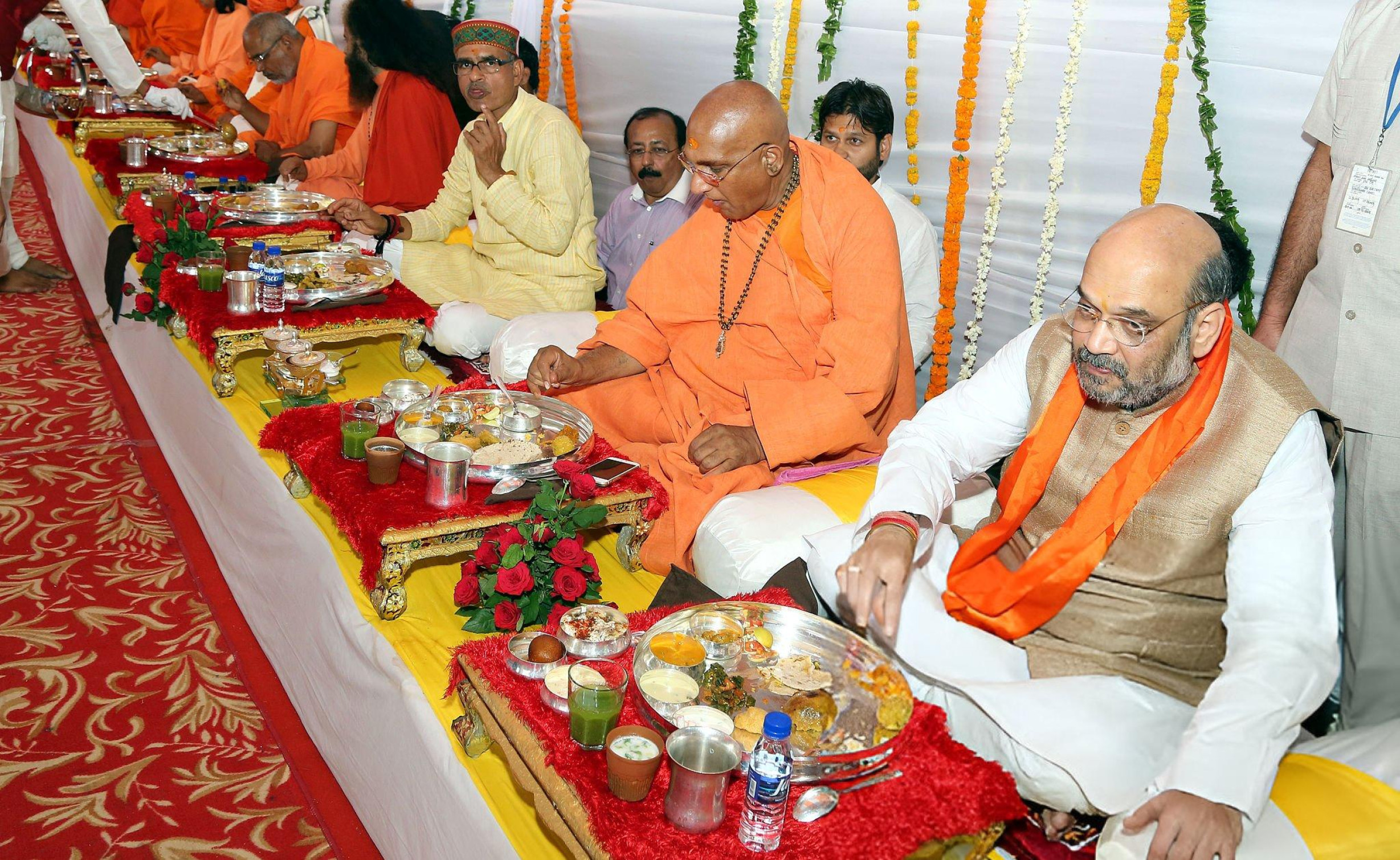Union Home Minister Amit Shah described the Kumbh Mela as an “eternal tradition” that has transcended historical challenges, including the eras of the Mughals, British colonial rule, and Congress governments in independent India. His statement came during the inauguration of a Hindu spiritual fair in Ahmedabad, where he emphasized the resilience and cultural significance of the Kumbh Mela, a hallmark of Hindu religious and cultural identity.
This event marked the beginning of Shah’s visit to Gujarat, where he attended several programs and addressed a gathering at the Hindu Spiritual Fair organized by the Hindu Adhyatmik Seva Sansthan and the Rashtriya Swayamsevak Sangh (RSS). Chief Minister Bhupendra Patel, RSS Pracharak Suresh Bhaiyyaji Joshi, and prominent Hindu spiritual leaders were also present. In his address, Amit Shah highlighted that the Kumbh Mela has been a continuous tradition for thousands of years, with arrangements being made by religious organizations for crores of pilgrims.
Despite the numerous invasions and changes in governance, the Kumbh Mela remained unaffected, symbolizing the resilience of India’s cultural and spiritual ethos. He remarked, “The Kumbh Mela is eternal and has endured through the Mughals, the British, and even Congress rule. This tradition continues, showcasing India’s unwavering spiritual strength.” Shah also pointed out that such large-scale events have always been self-sustained, requiring no external invitations or interventions.
Amit Shah delved into how India has witnessed a significant cultural transformation over the past decade. He explained that earlier, identifying as a Hindu could create hesitation or awkwardness. However, in the last ten years, India has reclaimed its cultural pride, with landmark ideological achievements reshaping the nation’s identity. He highlighted key milestones achieved under the current government: Abrogation of Article 370 in Jammu and Kashmir. The construction of the Ram Temple in Ayodhya, ending a 550-year-long wait. Development of the Kashi Vishwanath Corridor and ongoing restoration of the Somnath temple. Abolition of triple talaq and the implementation of the Uniform Civil Code (UCC). Shah emphasized, “Several ideological tasks that remained untouched for seven decades after independence have now been completed, allowing India to stand tall on the global stage.”
The Magnificence of the Mahakumbh
Drawing attention to the ongoing Mahakumbh in Prayagraj, Shah underlined its significance as a global wonder. He shared how foreign ambassadors were astounded by the scale of the event and the fact that it attracts around 40 crore people without formal invitations. Shah explained, “The Mahakumbh is not just an event; it is a celestial alignment. Ambassadors sought invitations, but I told them that this fair needs none. People are drawn to it naturally by faith and tradition.” This statement reflects the awe and fascination the Kumbh Mela inspires globally, further establishing it as a unique cultural phenomenon.
During his speech, Amit Shah paid homage to Netaji Subhash Chandra Bose on his 128th birth anniversary. He referred to Bose as a “polestar of the independence movement” who dedicated his life to liberating India. Additionally, Shah praised Ahilyabai Holkar, a queen from the Maratha Malwa kingdom, for her relentless efforts to restore Hindu religious sites destroyed during invasions. He acknowledged her contributions, noting how she used her resources to rebuild over 280 temples, further preserving India’s spiritual heritage.
The Hindu spiritual fair, inaugurated by Shah, serves as a platform to celebrate India’s rich heritage and promote unity among spiritual leaders and followers. The fair showcases the teachings of Hinduism and the cultural diversity of India. Shah’s presence underscored the government’s commitment to preserving and promoting Indian traditions. The Kumbh Mela stands as a testament to India’s enduring cultural and spiritual legacy. Despite challenges over centuries, it remains a symbol of unity, faith, and resilience. Amit Shah’s speech highlighted the significance of preserving such traditions and the strides made to reclaim India’s cultural pride. As India continues to embrace its spiritual and ideological roots, events like the Kumbh Mela and leaders like Ahilyabai Holkar remind us of the richness of our heritage and the importance of passing it on to future generations.
